Fans in North, Central, and South America cheer on Goku in his latest fight, but rights holder Toei isn’t nearly as happy.
Read More
piracy (Page 2)
Organization stresses the importance of keeping artists and publishers in the emotional loop between creators and fans.
Pirate manga pirates promptly pinched by prefectural police.
Every couple of months, a situation will crop up where the legal rights holder to an anime comes in and quashes some sort of unauthorized derivative work. Fans don’t always let the letter of the law stand in the way of how they express their passion for their favorite shows, though, and defenders often assert that no harm is actually being done, so long as the rights holder wasn’t already producing the same product. There’s no need to shut down an unlicensed T-shirt operation, the argument goes, if the company isn’t actively producing shirts itself.
Maybe that was going through the head of one Nagoya resident when he noticed a glaring oversight in the marketing machine behind hit anime One Piece, and decided to start selling one-dollar bills with copied stickers of the series’ band of pirates.
Earlier this year, we brought you the news that Japan’s wacky anti-piracy ads have turned into something of a cultural phenomenon, with body-popping mascots Camera Otoko and Patrol Lamp Otoko getting their own range of figurines. Now a new ad has been released, which features extra characters Popcorn Otoko and Soda Otoko. But what role do they have to play in this mini crime drama, besides providing delicious refreshment?
While the Japanese economy is powered by numerous exports and industries, from cars to computers, perhaps one of its largest, if not most visible, industries is that of entertainment content such as anime, manga and video games. While we all love good content–it is, after all, king–not everyone is necessarily willing or able to pay for it. While in days of yore that mostly meant simply going without the latest publication of your favorite manga, today’s high-speed Internet has made, shall we say acquiring content easier than ever.
While countries around the world debate the issues of online piracy, free speech, and copyright law, Japan is taking a somewhat more aggressive stance (anti-piracy even has its own figures in Japan!). Nevertheless, stopping piracy completely is an exercise in futility, which is probably why the M.A.G. (Manga-Anime Guardians) Project is aimed more at changing hearts and minds than using legal action to stop those pesky pirates. In fact, they’ll even give you a special-edition illustration if you join!
In the year since revisions to copyright law in Japan made illegal downloading a crime punishable with jail time and heavy fines, the music industry hasn’t experienced a significant increase in profits. In fact, police have yet to prosecute anyone for the crime! It kind of make you wonder if they know that Internet pirates don’t have peg-legs and eye patches…
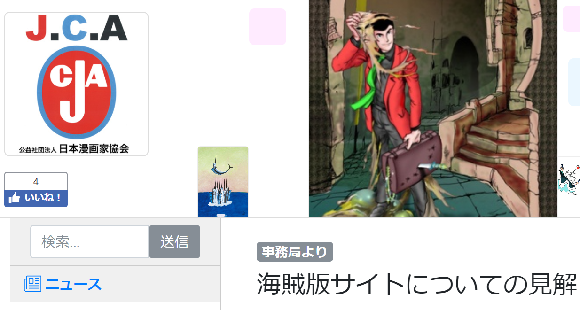


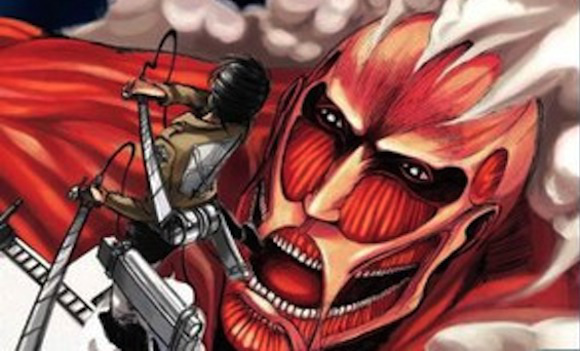
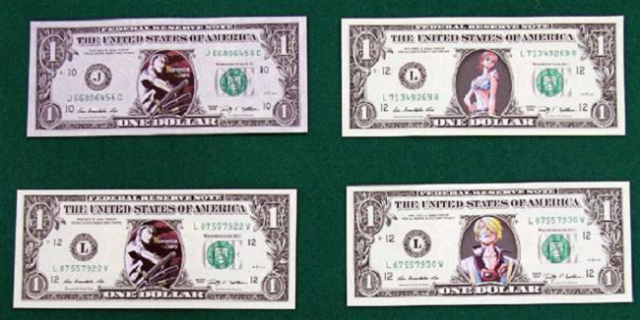
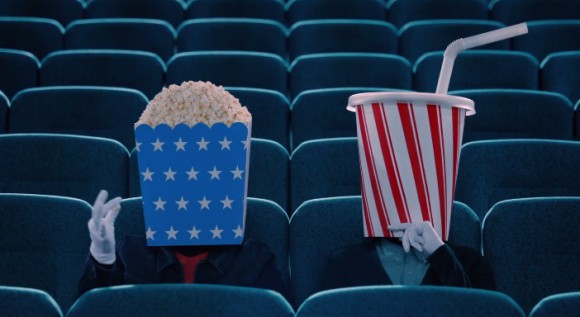
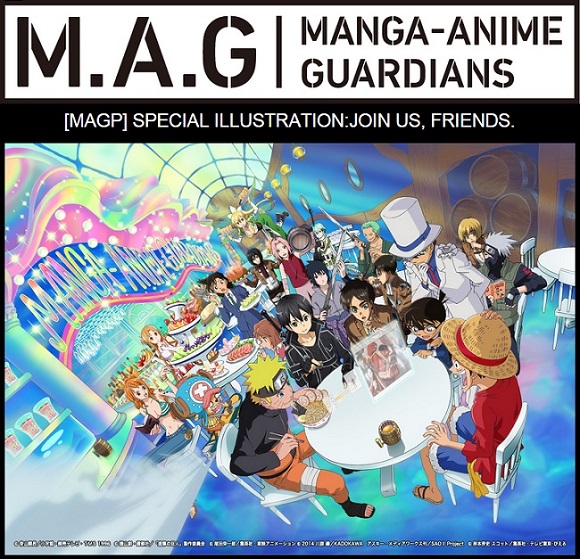
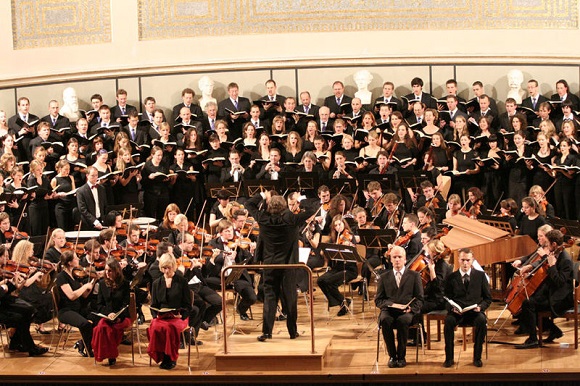
 Japan’s newest Shinkansen has no seats…or passengers [Video]
Japan’s newest Shinkansen has no seats…or passengers [Video] Foreigners accounting for over 80 percent of off-course skiers needing rescue in Japan’s Hokkaido
Foreigners accounting for over 80 percent of off-course skiers needing rescue in Japan’s Hokkaido Paying for prostitution isn’t illegal in Japan, but it could be soon
Paying for prostitution isn’t illegal in Japan, but it could be soon Satisfy your sweet tooth with cheesecake and more all-you-can-eat sweets at Cheese Garden
Satisfy your sweet tooth with cheesecake and more all-you-can-eat sweets at Cheese Garden New Family Mart cinema opens inside Japanese airport
New Family Mart cinema opens inside Japanese airport Five amazing snow-view open-air Japanese hot springs in Hokkaido [Photos]
Five amazing snow-view open-air Japanese hot springs in Hokkaido [Photos]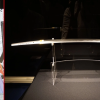 Real-life Rurouni Kenshin reverse-blade katana, forged by master swordsmith, now on display【Pics】
Real-life Rurouni Kenshin reverse-blade katana, forged by master swordsmith, now on display【Pics】 Man in Japan takes four parakeets hostage in attempt to force woman to meet with him
Man in Japan takes four parakeets hostage in attempt to force woman to meet with him Fashion for the young at heart! A different take on what it means to get older in Japan
Fashion for the young at heart! A different take on what it means to get older in Japan Man arrested in Japan after leaving car in coin parking lot for six years, racking up three-million-yen bill
Man arrested in Japan after leaving car in coin parking lot for six years, racking up three-million-yen bill Is China’s don’t-go-to-Japan warning affecting the lines at a popular Tokyo gyukatsu restaurant?
Is China’s don’t-go-to-Japan warning affecting the lines at a popular Tokyo gyukatsu restaurant? Three beautiful places to see Japan’s plum blossoms after starting your day in downtown Tokyo
Three beautiful places to see Japan’s plum blossoms after starting your day in downtown Tokyo Downloads of 39-year-old Guns N’ Roses song increase 12,166 percent thanks to Gundam
Downloads of 39-year-old Guns N’ Roses song increase 12,166 percent thanks to Gundam A look back on 40 years of Japanese schools banning stuff
A look back on 40 years of Japanese schools banning stuff Take a trip to Japan’s Dododo Land, the most irritating place on Earth
Take a trip to Japan’s Dododo Land, the most irritating place on Earth Huge Evangelion Unit-01 head appearing in lights in Japan to celebrate anime’s 30th anniversary
Huge Evangelion Unit-01 head appearing in lights in Japan to celebrate anime’s 30th anniversary Starbucks Japan releases new drinkware and goods for Valentine’s Day
Starbucks Japan releases new drinkware and goods for Valentine’s Day Japan releases first official sakura cherry blossom forecast for 2026
Japan releases first official sakura cherry blossom forecast for 2026 Archfiend Hello Kitty appears as Sanrio launches new team-up with Yu-Gi-Oh【Pics】
Archfiend Hello Kitty appears as Sanrio launches new team-up with Yu-Gi-Oh【Pics】 China’s don’t-go-to-Japan warning looks to be affecting tourist crowds on Miyajima
China’s don’t-go-to-Japan warning looks to be affecting tourist crowds on Miyajima Studio Ghibli releases new “komorebi” plush toys from Princess Mononoke and Spirited Away
Studio Ghibli releases new “komorebi” plush toys from Princess Mononoke and Spirited Away Yokai are descending upon Tokyo this spring in the latest immersive art experience
Yokai are descending upon Tokyo this spring in the latest immersive art experience Japan’s Naruto theme park now offering real-world version of Minato’s kunai ninja weapon
Japan’s Naruto theme park now offering real-world version of Minato’s kunai ninja weapon New Studio Ghibli stamps leave an impression on your stationery…and your heart
New Studio Ghibli stamps leave an impression on your stationery…and your heart Survey asks foreign tourists what bothered them in Japan, more than half gave same answer
Survey asks foreign tourists what bothered them in Japan, more than half gave same answer Japan’s human washing machines will go on sale to general public, demos to be held in Tokyo
Japan’s human washing machines will go on sale to general public, demos to be held in Tokyo We deeply regret going into this tunnel on our walk in the mountains of Japan
We deeply regret going into this tunnel on our walk in the mountains of Japan Studio Ghibli releases Kodama forest spirits from Princess Mononoke to light up your home
Studio Ghibli releases Kodama forest spirits from Princess Mononoke to light up your home Major Japanese hotel chain says reservations via overseas booking sites may not be valid
Major Japanese hotel chain says reservations via overseas booking sites may not be valid Put sesame oil in your coffee? Japanese maker says it’s the best way to start your day【Taste test】
Put sesame oil in your coffee? Japanese maker says it’s the best way to start your day【Taste test】 No more using real katana for tourism activities, Japan’s National Police Agency says
No more using real katana for tourism activities, Japan’s National Police Agency says Starbucks Japan reveals new sakura drinkware collection, inspired by evening cherry blossoms
Starbucks Japan reveals new sakura drinkware collection, inspired by evening cherry blossoms Updated cherry blossom forecast shows extra-long sakura season for Japan this year
Updated cherry blossom forecast shows extra-long sakura season for Japan this year Five amazing snow-view open-air Japanese hot springs in Hokkaido [Photos]
Five amazing snow-view open-air Japanese hot springs in Hokkaido [Photos] Real-life Rurouni Kenshin reverse-blade katana, forged by master swordsmith, now on display【Pics】
Real-life Rurouni Kenshin reverse-blade katana, forged by master swordsmith, now on display【Pics】 Man in Japan takes four parakeets hostage in attempt to force woman to meet with him
Man in Japan takes four parakeets hostage in attempt to force woman to meet with him Fashion for the young at heart! A different take on what it means to get older in Japan
Fashion for the young at heart! A different take on what it means to get older in Japan Man arrested in Japan after leaving car in coin parking lot for six years, racking up three-million-yen bill
Man arrested in Japan after leaving car in coin parking lot for six years, racking up three-million-yen bill Hokkaido has an Ice Festival that’s less famous than the Snow one, but beautiful in its own way
Hokkaido has an Ice Festival that’s less famous than the Snow one, but beautiful in its own way We followed Tokyo’s mystery walking map and ended up creating our own bar-hopping adventure
We followed Tokyo’s mystery walking map and ended up creating our own bar-hopping adventure New adults go wild at Seijinshiki Coming-of-Age ceremony in Kitakyushu, Japan 【Photos】
New adults go wild at Seijinshiki Coming-of-Age ceremony in Kitakyushu, Japan 【Photos】 Back in Japan by popular demand: Ice cream that looks exactly like a roasted sweet potato
Back in Japan by popular demand: Ice cream that looks exactly like a roasted sweet potato Awesome website allows you to make your own Dragon Ball character, battle other fighters
Awesome website allows you to make your own Dragon Ball character, battle other fighters Foreigner and skiing pals get lost in Japan, call cops for help, ignore them when they call back
Foreigner and skiing pals get lost in Japan, call cops for help, ignore them when they call back New Studio Ghibli exhibition brings anime movie magic to cities around Japan
New Studio Ghibli exhibition brings anime movie magic to cities around Japan Japan law lets you claim reward for finding lost property, man may have scammed it over 60 times
Japan law lets you claim reward for finding lost property, man may have scammed it over 60 times